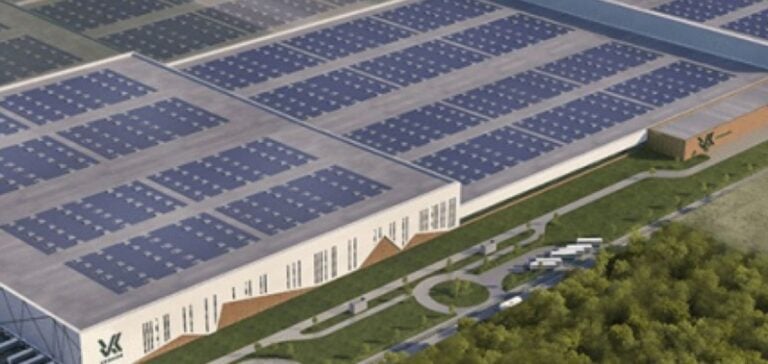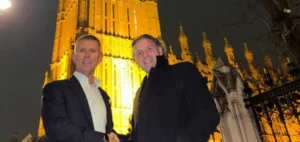Verkor has announced that it has secured 1.3 billion euros in green financing with the support of 16 commercial banks and 3 public banks. This sum will finance the construction of the company’s first gigafactory, located in Dunkirk, France, with an initial production capacity of 16 GWh/year. The financing agreement was signed in the presence of the French Minister of Industry, Roland Lescure, underlining the importance of this project for reindustrialization and the energy transition in France. This financing comes on top of the more than 2 billion euros raised by Verkor last September, bringing the total funds secured for the Gigafactory and Verkor Innovation Centre to over 3 billion euros. The Gigafactory is scheduled to produce its first low-carbon battery cells in 2025, creating around 1,200 direct jobs and 3,000 indirect jobs over the next two years. This is good news for the town, which is already involved in wind power projects.
Impact on the automotive industry and the energy transition
Verkor’s gigafactory in Dunkirk is a powerful symbol of reindustrialization in France, against a backdrop of energy transition. It will play a crucial role in achieving the goal of producing two million electric cars in France by 2030. Benoit Lemaignan, co-founder and president of Verkor, said the financing would enable the company to become a European leader in battery manufacturing. The Gigafactory will also help meet the growing need for batteries for mobility and stationary storage. Verkor’s project is part of a wider energy transition strategy in Europe, aimed at reducing dependence on battery imports and developing a local supply chain. This initiative is supported by favorable government policies and partnerships with key industry players.
Verkor: a major player in the energy transition
Since its foundation in 2020, Verkor has rapidly established itself as a key player in Europe’s energy transition. By focusing on the production of low-carbon batteries, the company is helping to reduce CO2 emissions and promote renewable energies. The Dunkirk Gigafactory represents a strategic investment in the future of the French and European automotive industry. The start-up benefits from the support of numerous financial and industrial partners, strengthening its market position. By developing innovative technologies and increasing its production capacity, Verkor aims to meet the growing demand for batteries for electric vehicles and energy storage systems.
Future prospects
The construction of Verkor’s gigafactory in Dunkirk marks a crucial step in France’s reindustrialization and Europe’s energy transition. With a planned output of 16 GWh/year by 2025, the plant will contribute to the energy autonomy and competitiveness of the French automotive industry. Verkor is positioned as a leader in battery manufacturing, capable of meeting tomorrow’s technological and environmental challenges.
By collaborating with European partners and benefiting from substantial financial backing, Verkor is well placed to play a central role in the transformation of the battery industry. Continued investment and technological innovation will be essential to maintain this momentum and ensure a sustainable future for electric mobility.






















